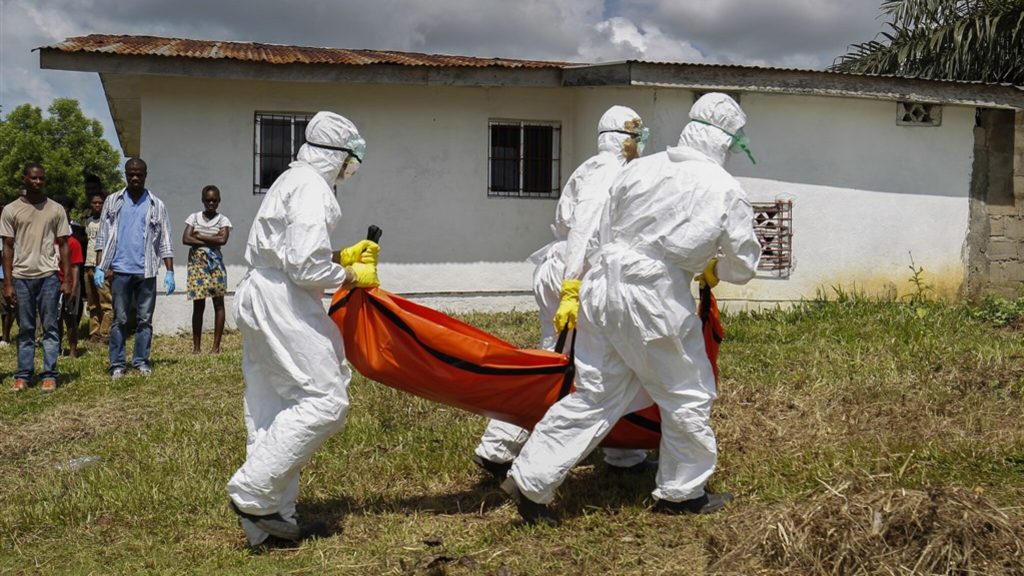Oh no, another virus is rearing its head. So far in Ghana. Marburg virus has been found in three regions of that country. It started with two injuries at the end of June. These people are now dead. But what kind of virus is it exactly?
1. What are the symptoms?
It often begins with a fever, muscle aches, or diarrhea. For many people infected with Marburg virus, it is not initially clear whether it is this specific virus.
But secondly, the severity of the disease is obvious. “Then organ failure can occur,” says Martin Grobusch, MD, professor of tropical medicine at UMC Amsterdam. “Some patients start bleeding. About 50 percent of people who get very sick die.”
Ebola
Ebola virus and Marburg virus are difficult to distinguish from each other. In terms of symptoms, they are almost the same. Ebola is also a rare infectious disease that is often accompanied by bleeding in the body.
Most people will know Ebola from the main outbreak of 2013-2016 in West Africa. Countries such as Sierra Leone, Guinea and Liberia have been hit hard. 28,000 people were infected, 12,000 of whom did not survive.
2. How can you get infected with Marburg virus?
There is an animal known as the Marburg virus host. And that’s the bat, Grobusch told RTL Nieuws. “Bats can transmit it to humans in a number of ways.”
“First of all, if you catch an infected bat. In addition, you are also likely to eat a fruit that still has bat saliva on it. Or if you eat a bat that has not been properly prepared.”
A bat can infect anyone. Once this happens, the infected person can also pass it on to another human. “This goes through direct contact with the stool or body fluids of a sick person,” Grobush says.
3. What is the difference between Marburg virus and Ebola?
According to Grubusch, there are a few differences. “The two viruses are genetically close to each other. They have the same host (bats, ed.) and come from the same region (west, central and eastern Africa, ed.).”
In 2019, Ebola weighed heavily on Congo:
“But there is a very important difference,” Grobush says. “Over time, many vaccines have been developed that work well against Ebola. But against Marburg virus, there is not one.”
4. Will there be another pandemic?
There is no vaccine available, this does not look good. However, you don’t have to worry about another pandemic emerging, Grobush says. “For that you need an easily accessible means of transmission from person to person. This is not the case with Marburg virus, because in that case you really have to come into contact with other people’s bodily fluids.”
And we’re not talking (yet) about massive numbers of casualties. In Ghana, two have been counted so far. They were registered a few weeks ago.
“With Marburg virus, we have to consider an incubation period of 21 days,” Grobush says. “Known infections were recorded at the end of June. That was more than 21 days ago, however, as far as I know, no new case has appeared since then. This is hopeful, although it is not yet clear whether the outbreak will be It will remain really limited.”
If it remains limited, according to Grubusch, this is partly due to the experience the authorities now have. “Countries are well prepared. These are the lessons learned from, for example, the Ebola epidemic and other outbreaks.”
5. What is the advice for people living in Ghana?
“One of the top tips is: Be careful when eating bushmeat,” Grobush says. This is meat that comes from hunting wild animals in the tropics or warmer regions. Then think of bats.
Grobusch: “Don’t eat fruit you find somewhere. Try to avoid contact with other people’s bodily fluids. Hand hygiene is always important. But mouth coverings are useless. Because Marburg virus spreads in a different way than, for example, corona.”
Should a Dutchman become infected, not all alarm bells would go off immediately. “There is always a risk that someone with a highly infectious disease will end up in the hospital. Hospital staff always keep this scenario in mind.”
“In the Netherlands, people pay close attention. Hospitals, doctors and the RIVM,” Grobusch says. “The situation is monitored and hygiene measures are always observed. And if someone contracts the virus on the trip back to the Netherlands, they simply do not travel. So we can feel safe.”

“Total coffee specialist. Hardcore reader. Incurable music scholar. Web guru. Freelance troublemaker. Problem solver. Travel trailblazer.”






More Stories
Two dengue patients at HOH
What are the main differences between humans and other mammals?
By Theo Olthuis: “Space gave its soft wings of sound”